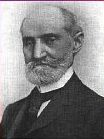Fever
Characteristic Especially for children during dentition in hot summer weather, children who cannot bear milk.
Great weakness: children cannot stand, unable to hold up the head (Abrotanum, Calcareap., Silicea), prostration with sleepiness.
Idiocy in children: incapacity to think, confused.
Features expressive of great anxiety and pain, with a drawn condition and well – marked linea nasalia.
Herpetic eruption on end of nose. Complete absence of thirst (Apis, Pulsatilla, rev. of Arsenicum). Intolerance of Milk: cannot bear milk in any form, it is vomited in large curds as soon taken, then weakness causes drowsiness (compare Mag.c. ).
Indigestion of teething children, violent, sudden vomiting of a frothy, milk – white substance, or yellow fluid, followed by curdled milk and cheesy matter.
Regurgitation of food an hour or so after eating, copious greenish vomiting.
Epileptic spasms with clenched thumbs, red face, eyes turned downwards, pupils fixed and dilated, foam at the mouth, jaws locked, pulse small, hard quick.
Weakness and prostration with sleepiness, after vomiting, after stool, after spasm.
Aggravation: After eating or drinking, after vomiting, after stool, after spasm.
Chill: Violent, without thirst, through whole body with general and external coldness.
Coldness of abdomen, objective and subjective (Tabacum), with red face, with horripilation, with rigors and stiffness of limbs, with delirium, chin and corners of mouth feel cold.
Heat: General, skin hot and dry, with complete absence of thirst.
Sweat: From least exertion, profuse, cold, on going to sleep (China), cannot bear to be uncovered during (Aconite, Nux.), relieves malaise and delirium.
Analysis – The fever usually occurs in nursing children, during dentition, in the morning, with marked lassitude, prostration and delirium. The complete absence of thirst, the intolerance of milk and other gastric phenomena make its selection easy.

